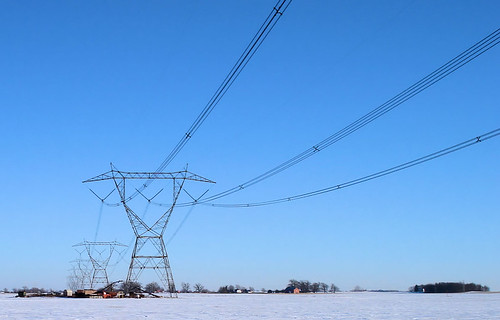At the Sapphire 2009 event in Orlando Chad Leonard from SAP gave us a demo of some interesting software for utilities which addresses the cost to serve model and CO2 reporting.
[Disclosure: SAP paid my travel and expenses for attending Sapphire]
Green from the roots up, Sustainable from the top down

by Tom Raftery
At the Sapphire 2009 event in Orlando Chad Leonard from SAP gave us a demo of some interesting software for utilities which addresses the cost to serve model and CO2 reporting.
[Disclosure: SAP paid my travel and expenses for attending Sapphire]

by Tom Raftery
I met James McClelland at SAP’s Sapphire conference in Orlando a couple of weeks back.
We had a great chat about utilities, smart grids and the changing role of software for utility companies which I recorded and am publishing here now.

by Tom Raftery
I was talking to Guerry Waters, the VP Industry Strategy in the Oracle Utilities Global Business Unit the other day.
Guerry was telling me about Oracle Utilities’ background and how they came about as the result of Oracle’s acquisition of SPL back in Nov 2006 and Lodestar in 2007.
We got onto the subject of Demand Response (surprise, surprise!) and I raised my concerns about utilities being too command and control. When I said that for DR to really take off consumers need to be in control of their devices Guerry said:
The idea of automatic control of your Demand Response in the home is very intriguing but very much on the edge now, so what we are doing is we are working with a number of companies, like Tendril, that provides Home Area Networks (HANs) and control of devices in the home, where there can be parameters set from signals that are being passed to the HAN about price…. and bring that down to the HAN and let the HAN respond according to parameters that have been set by the consumer themselves…. and give the consumer opt-out capabilities from that.
Guerry went on to describe scenarios where your Home Area Network can contact you via SMS, for instance if you are away from home to alert you that your HAN is about to respond to a DR signal and do you want to overide or not!
Guerry did say that there are very few utilities thinking this far out but the fact that there are any is hugely heartening!
Our conversation went on to discussing vehicle to grid technologies and it was super to see that Oracle are thinking about the challenges to be overcome and ways to roll out the technologies required to make this a reality.
With both SAP and Oracle rolling out enabling technologies in this space, the Electricity 2.0 vision is quickly becoming a reality.

by Tom Raftery

Photo Credit Bob Fornal
So, Nick Carr writes regularly about cloud computing and how the Internet is heading more and more towards the same model as the utilities. And he’s right. And this is a good thing.
Now let’s turn that on its head.
When will the utilities start to become more like the Internet? Specifically, when will disparate, disconnected electrical grids join up to give us one global electricity super-grid?
Can you imagine the resilience of a massively connected super-grid? One which can route around problems.
Then think about how much more stable the super-grid would be if the excess energy produced by, for instance, Scandanavian wind farms on windy nights could simply be sold to meet capacity shortages in the US as people arrive home from work, or in Japan as they start to wake up.
What if the grid were smart, publishing prices in real-time, based on supply and demand fluctuations?
And further, what if smart meters in homes and businesses could adjust appliances based on the real-time pricing (thermostats up/down, devices on/off, etc.)?
And what if, again like the Internet, the super-grid were read/write i.e. if you could be a producer as well as a consumer? Think plug-in hybrid vehicles, for example. In times of more abundant electrical supply when energy is cheap or negatively priced (sun shining on Spanish PhotoVoltaic arrays and/or wind blowing on Northern European wind farms), plug-in hybrids could suck in electricity and act as a distributed electrical storage mechanism. Several hours later, if the wind dies down, or the sun sets electricity prices jump and the smart meters realise it is now financially advantageous for plug-in hybrids to sell electricity back to the grid. So they do.
What if most of the technologies to make this happen already existed? How long will it be before the utilities embrace the Internet model in the same way the Internet is jumping on the utility model?
UPDATE: Simon Wardley writes that:
According to wikipedia, “the concept of an interconnected global grid linked to renewable resources was first suggested by Buckminster Fuller” in the 1970s.
There are even organisations such as the Global Energy Network Institute (GENI) who apparently have been working on the “viability of the interconnection of electric power networks between nations”.
This subject deserves a higher profile.
It seems I am in august company!